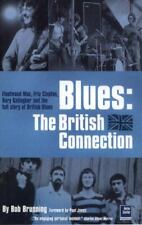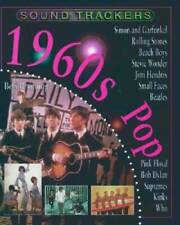|
HEADLINE: Don't stop thinking of yesterday
BYLINE: Caroline Sullivan, December 7, 1992
BODY:
Even their ''dinosaur rock'' label is old hat. Caroline Sullivan profiles Fleetwood Mac: 25 years old, and endorsed by Bill Clinton
Most rock bands regard hotel windows as exit routes for furniture. Fleetwood Mac reversed the process. They had grand pianos craned into their suites. This, naturally, was after the suites had been repainted to their specifications. The five musicians travelled to concerts in separate limousines; there, hairdresser, wardrobe mistress and make-up artist stood by to prod them into presentability.
All of this, which occurred during the 1980 Tusk tour, is recounted in a new book by drummer Mick Fleetwood: My 25 Years in Fleetwood Mac (Weidenfeld & Nicolson, Pounds 17.99). Its publication last week coincided with the release of a four-CD anthology, 25 Years The Chain (Reprise). At Pounds 53.99, the set is not a bargain, but a two-CD condensed version, Selections from 25 Years The Chain is out today.
This lavishness is typical of Fleetwood Mac. When it comes to excess, they not only wrote the book but bound it in hand-tooled sequins. Their 1977 album, Rumours (whose 25 million sales make it the biggest-selling rock album after Michael Jackson's Thriller), spawned a legendary era of high living that continued into the Eighties. Tusk, the follow-up to Rumours, cost $1 million to record a vast sum in 1979.
''We'd fly in lox from Nova Scotia,'' says the keyboardistsongwriter Christine McVie. ''It was outrageous, but it was really fun at the time.''
The Mac lifestyle was indivisible from the music. Their burnished soft rock could only have been created by people who had pianos winched into hotel rooms. The style became known as Adult Rock or, as the punks of the day insisted, Dinosaur Rock. Mac's success inspired a host of similarly tasteful bands. It is possible to forgive Fleetwood Mac their pianos. But can we forgive them Dire Straits?
A 1990 hit by The Reynolds Girls summarised Fleetwood's unhipness: ''I'd rather jack (dance) than Fleetwood Mac.'' Fleetwood Mac have heard the song, and pronounce themselves bemused. ''I thought 'jack' meant something rude,'' says Mick Fleetwood, still wryly English after 19 years' residence in California. ''It's never hip to like anyone successful. When we started we were considered cool; then we got into the charts and suddenly we were the biggest schlocks ever. Sting once criticised us, but look at him now.''
Fleetwood and McVie have not been obliged to meet the press since the release of their last studio album, 1990's Behind the Mask. Now they are easing back into public view, gearing up for an anticipated appearance at Bill Clinton's inaugural ball. ''Probably,'' Fleetwood hedges. ''We've been approached, and told them we'd like to play.''
Perhaps the president-elect thought it was the least he could do after appropriating the band's old hit ''Don't Stop (Thinking About Tomorrow)'' as his campaign theme song. If it happens, Fleetwood Mac will be the first rock group to grace an inaugural gala. Depending on how you look at it, their presence there will emphasise Clinton's youth or the group's own middle-agedness.
Soon after that, the group (currently composed of Fleetwood, McVie, bassist John McVie, guitarist Billy Burnette and vocalistwriter Stevie Nicks) will start a new album. Mac albums are notoriously long in the making. Two years in the studio is nothing for an outfit that once spent four days just tuning a piano. When it eventually appears, it will certainly be the usual classy affair, with Christine's polished tunes offset by Nicks's mystical meanderings.
Fleetwood Mac's internal affairs have always been lurid and labyrinthine. My 25 Years in Fleetwood Mac presents a somewhat sanitised version of a history that has encompassed drugs, alcoholism, apparent insanity and cult religions (for starters). The book ends in 1990. Much has happened since.
''I've sobered up and become drug-free,'' declares Fleetwood, who looks pretty good for someone who admits to 15 years of substance misuse. ''It was long overdue. Drugs became a bloody nightmare. I'd be in bed for three or four days at the time. I was good at disguising it, but I was a functioning wreck.'' ''You'd be the colour of this wall,'' McVie tells him, gesturing at the white paint, ''and we'd be terrified you'd pass out on your drums on stage.''
''I only couldn't do an encore once at Wembley,'' Fleetwood replies, mildly miffed. ''But I was desperate. I went to Hawaii and drank a bottle of brandy a day for ten days. Then I played tennis with my daughter and passed out. I thought I'd had a stroke. Two days later, by the grace of God, I stopped everything overnight.''
He speaks with moving eloquence. Drugs have eviscerated his band. Three members, Peter Green, Jeremy Spencer and Danny Kirwan, broke down under their effects. Green, considered a great guitar talent, slept rough for a time, as did Kirwan. Fleetwood says that Green is now ''seemingly better''. He has not seen Kirwan recently. Of Spencer, who quit hours before a concert to join the Children of God cult, he reveals: ''He's great. He lives in Rio and has eight kids and three grandchildren.''
Nowadays, Fleetwood and chums are more selective about their indulgences. They are hideously wealthy; Rumours still generates royalty cheques that Fleetwood describes as ''a kind of pension''. Instead of spending the money on cocaine and lox, they admit to a penchant for houses and first-class air travel.
The future? ''I don't like Los Angeles. I hate having to sleep with an earthquake kit by the bed,'' says Christine. ''Eventually I'd like to move back here and start a sideline designing teapots.''
|






